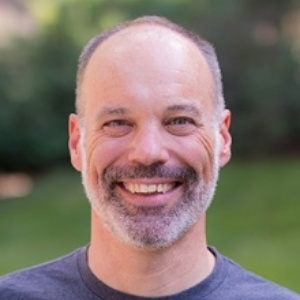| Time: | February 3, 2020, 4:00 p.m. (CET) |
|---|---|
| Lecture Hall 47.04, Pfaffenwaldring 47 | |
| Download as iCal: |
|
The Department of Hydromechanics and Modelling of Hydrosystems (LH2) cordially invites to the 2020 Darcy Lecture by Reed Maxwell from the Colorado School of Mines.
About Reed Maxwell
Dr. Reed Maxwell is faculty in the Geology and Geological Engineering Department, core faculty in the Hydrologic Science and Engineering Program, and the Director of the Integrated GroundWater Modeling Center (IGWMC) at the Colorado School of Mines. His research interests are focused on understanding connections within the hydrologic cycle and how they relate to water quantity and quality under anthropogenic stresses. He is an elected Fellow of the American Geophysical Union, was the 2018 Boussinesq Lecture and the 2017 School of Mines Research Award recipient. He has authored more than 120 peer-reviewed journal articles and teaches classes on integrated hydrology, fluid mechanics and modeling terrestrial water flow. He currently leads a research group of graduate students, postdoctoral researchers and staff housed in the IGWMC at Mines. He has graduated 13 PhD students and 20 MS thesis students since coming to Mines in 2009. Before joining the faculty at Mines, Dr. Maxwell was a postdoc and then staff in the Hydrologic Sciences group at Lawrence Livermore National Laboratory and he holds a Ph.D. degree in Environmental Water Resources from the Civil and Environmental Engineering Department at the University of California, Berkeley.
Abstract
We are in the midst of a revolution in computing and data. In the past 50 years we have moved from electrical analog models to massively parallel computer systems. The fastest computers in the world when landmark papers such as Freeze and Harlan were written are much slower than the average smartphone of today. Hydrology is taking advantage of this revolution in many ways. Computational Hydrology seeks to leverage modern computing capacity to study water and energy fluxes and stores across the hydrologic cycle at spatial scales and complexity not previously possible. Integrated hydrologic simulations that couple boundary layer, vegetation, and land energy processes with surface and subsurface hydrology have great potential to advance our understanding of terrestrial hydrology spanning small catchments to the continental scale. Several movements within hydrology, such as the so-called hyperresolution approach, have organized and accelerated this goal. Hydrologic simulation from a historical perspective, starting with the early watershed models to more modern, integrated approaches that realize blueprints laid out fifty years ago will be presented. The lecture will discuss how computational advances are shaping our simulation capabilities, changing the questions that we are able to ask as scientist, and changing how we educate our students. High-resolution, continental-scale simulation is an exciting component of computational hydrology forecasting and scientific discovery. It will outline a path to move beyond our traditional siloed simulation platforms and to leverage these large datasets and massive community development investments to better connect our hydrologic models to the communities outside of hydrology.
About the Darcy Lecture
The Henry Darcy Distinguished Lecture Series in Groundwater Science fosters interest and excellence in groundwater science and technology. It was established in 1986 and named in honor of Henry Darcy for his 1856 investigations that established the physical basis upon which groundwater hydrogeology has been studied ever since. The series is organized by the Groundwater Foundation of the National Ground Water Association. The series is organized by the Groundwater Foundation of the National Ground Water Association.


